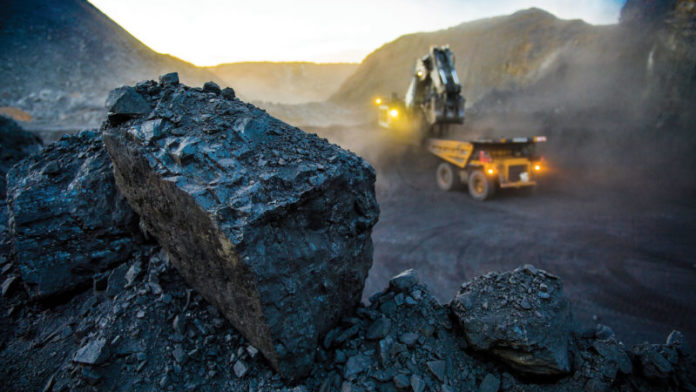
Do you fancy your chances as a contrarian investor? Do you also maybe get a buzz out of making money from an investment which is currently highlighting the hypocrisy of the “holier than thou” developed countries which have been browbeating South Africa into not burning coal?
Those would include various European countries which – since the war in Ukraine triggered the latest energy crisis – have been sending bulk carriers to queue off Richards Bay waiting anxiously to load coal from the Richards Bay Coal Terminal.
If so, then Thungela Resources is the stock for you because it provides some 15mt annually of that export coal and this week announced staggering profits for the six months to end-June.
CEO July Ndlovu also declared his intention to deliver more of the same vowing that Thungela will effectively stick to its knitting in the coal business which he maintains is a good business to be in and is going to remain so for the medium term.
“That’s why I am in coal. I believe in the fundamentals of coal and Thungela is a true coal company. This surprises a lot of people,” he comments.
“Surprises a lot of people” is an understatement given the widespread condemnation of the sector and it’s demotion to pariah status in the investment community because of the environmental pressures against it.
Banks now routinely refuse to lend money to coal projects and financial institutions decline to fund them which has effectively ruled-out further development of South Africa’s huge Waterberg coal field.
Major mining groups have divested from the sector under pressure from powerful shareholder lobbies and non-governmental organisations which want them to be responsible and “go green”.
That is how Thungela was created when Anglo American opted to get out of coal and demerged its export collieries to list them in a separate company it no longer had anything to do with. Anglo previously sold its Eskom-tied collieries to Seriti Resources.
Ndlovu is unapologetic. He comments, “ Everybody thinks net zero means zero fossil fuels but it does not mean that. Net zero just means we are in a balanced equation. There will be some fossil fuels being burnt including coal into the 2050’s. My view is that I want the coal being burnt to be ours.” he declares.
He takes it a step further. “Diversification” to Ndlovu means diversifying his coal business out of South Africa into other suitable coal mining destinations. It does not mean diversification into alternative renewable energy projects such as the deal announced this week by Seriti Resources to get into wind generation in a big way.
He comments, “We understand coal and we know how to work in developing economies in sub-Saharan Africa. There are attractive opportunities in this regard and we will continue to look for them. We want to diversify geographically. That’s a priority.”
So, no renewable/alternative energy projects?
Ndlovu replies, “sometime in the future we will probably look at it but, even if we found something really compelling, it would have to compete against opportunities in the space we know which is coal.
“If we can convince ourselves that there is something we know about alternative energy and we can win, then we might do it.”
Asked how long the boom times for coal can continue Ndlovu replies it is important to separate the commodity cycle trend from the “transient” demand created by the conflict in Ukraine.
He adds, “ we expect prices to remain firm well into the middle of next year but what we are seeing are two major developments that people cannot ignore.
“These are the desire by countries to be energy secure – which has brought coal back into the equation – and then energy diversification. You can no longer rely on a single country. You need to diversify where you buy your sources of energy from.
“Combine that with the fact that there is still no investment going into thermal coal and it can only create an environment that is price supportive in the medium-term”.









